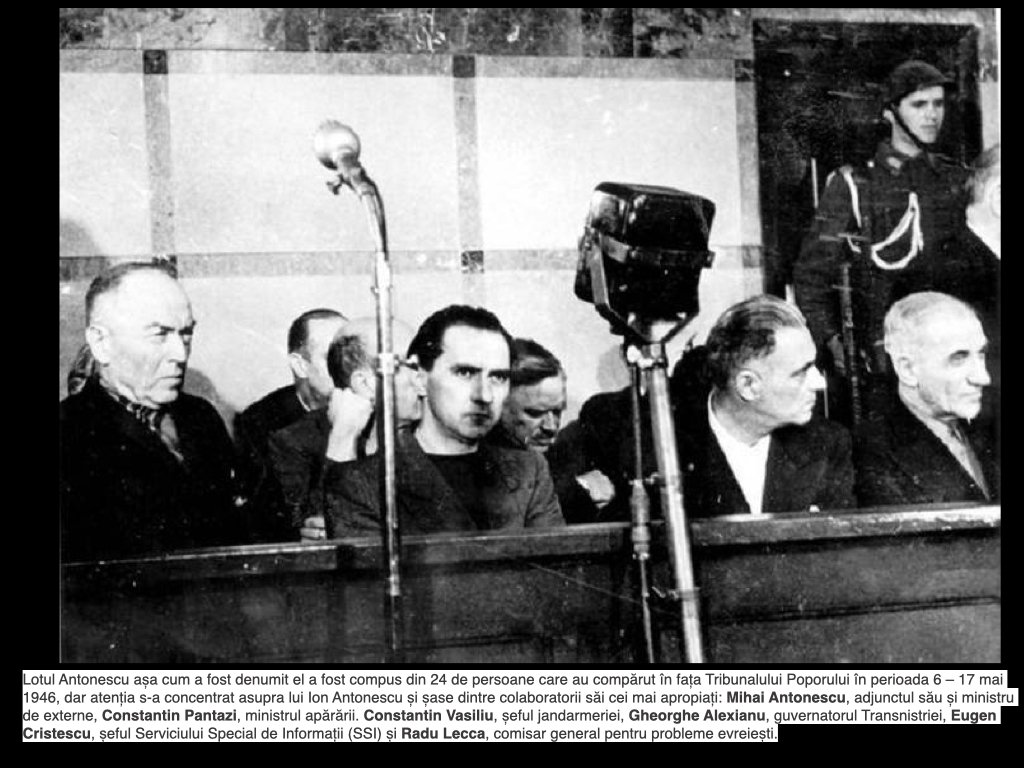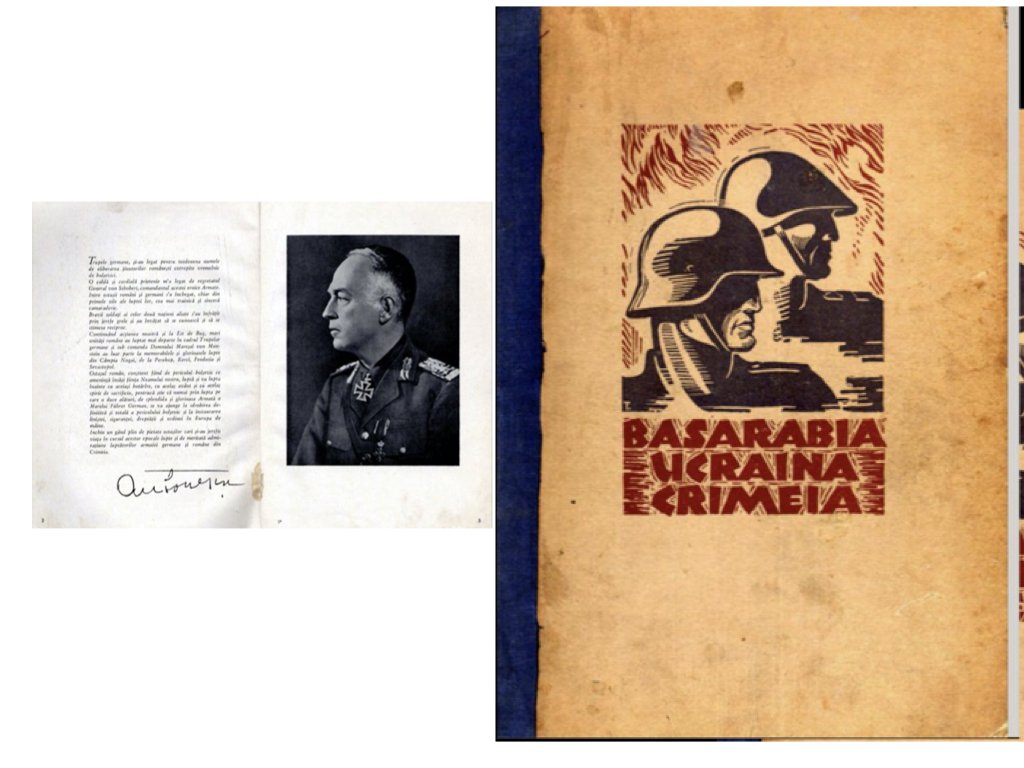1941 Ion Antonescu breaks away from the
Legionaires.
Between 21 and 23 January 1941, a rebellion of the Iron Guardparamilitary organization, whose members were known as Legionnaires, occurred in Bucharest, Romania. As their privileges were being gradually removed by the Conducător Ion Antonescu, the Legionnaires revolted.1941 Ion Antonescu breaks away from the Legionaires: the Rebelion.
The disagreement between Antonescu and the Iron Guard about the robbery of the Jews was not about the robbery itself but about the method, and the final destination of the stolen property. Antonescu held that the robbery should be done by way of expropriation, gradually, through an orderly process of passing antisemitic laws.
... the Legionnaires wanted everything, and they wanted it immediately; Antonescu, while sharing the same goal, intended to achieve it gradually, using different methods. The leader stated this clearly in an address to Legion-appointed ministers: "Do you really think that we can replace all Yids immediately? Government challenges are addressed one by one, like in a game of chess.
The Legionnaires, on the other hand, wanted to rob as much as possible, as quickly as possible, utilizing methods based not in law but in terror, murder and torture.
According to the laws of Romanianization, Jews were forced to sell many of their businesses, a fact used by many Romanians to purchase those businesses for close to nothing. The German minority introduced a level of competition by offering the Jews a better price than the one offered by the Legionnaires (on average, about one-fifth of the real worth). The local Germans had capital received as a loan from Germany, Romanian money paid to the Germans for keeping military units in their territory (to protect them from the Soviets). Antonescu demanded that the Legionnaires cease their terror tactics, and the Legionnaires began plotting to usurp Antonescu and take over sole control of the country.
Initially, the Legionnaires began "defaming" Antonescu, mentioning his family relation to Jews (his stepmother and his wife's previous husband were Jews). They also accused him of being linked to Masonry. According to Nazi propaganda, the Freemasons were enemies of humanity, second only to Jews in wickedness.
In the 20 days preceding the rebellion, the level of antisemitic propaganda greatly increased, using all the tools at the Legionnaires' disposal. The propaganda emphasized the need for solving the "Jewish problem". Horia Sima and his comrades sought the sympathy of the Nazi regime in Germany, and built upon the ideological similarities between their movement and the Nazi movement, and had quite a few supporters within the Nazi establishment.
Antonescu, who had the support of Romania's military, met with Adolf Hitler on 14 January 1941, in Germany. During this meeting he promised Hitler the cooperation of Romania in any future German conflict with the Soviet Union, and gained Hitler's tacit agreement to eliminate Antonescu's opponents in the Legionnaire Movement. Between 17 and 19 January the Legionnaire movement conducted a series of "lectures" throughout Romania, designed to demonstrate the national socialist nature of their movement and to show their loyalty to Hitler.
Antonescu took measures to curb the actions of the Legionnaires, and on 19 January issued an order canceling the position of Romanization commissars: well-paying jobs, held by Legionnaires. Additionally, he fired the persons responsible for terror acts committed by Legionnaires, from Minister of the Interior Constantin Petrovicescu to the commanders of the Security Police and the Bucharest police. He appointed loyal military men in their place. The military also took control of strategic installations, such as telephone exchanges, police stations and hospitals. The district officers of the Legionnaires were called to the capital for an important economic consultation, but found themselves arrested in the middle of the meeting.
Source: Wikipedia.


